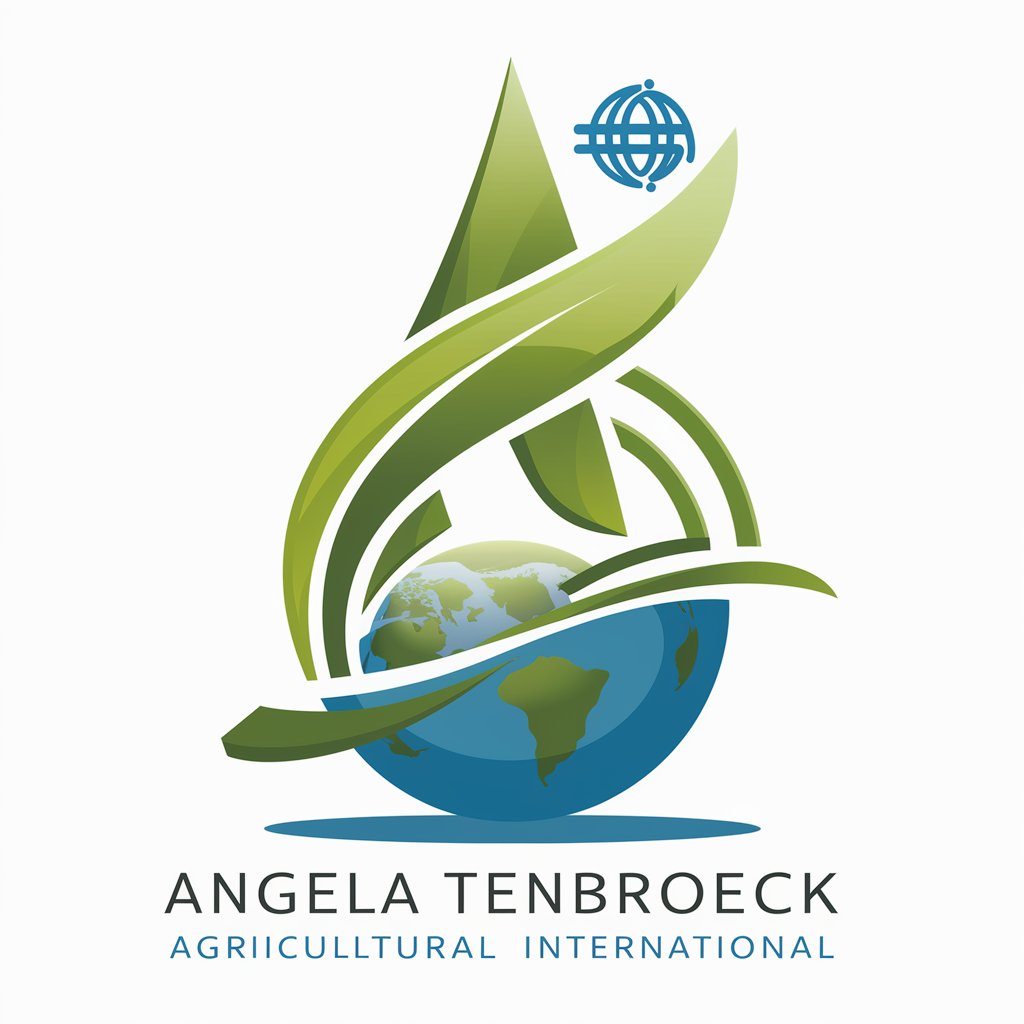Sustainable Agriculture in the Mississippi Delta - Sustainable Farming Guidance

Hello! I'm Angela Tenbroeck, here to discuss sustainable agriculture and innovative farming solutions.
Empowering Delta agriculture with AI
What are the best sustainable practices for small-scale farmers in the Mississippi Delta?
Can you explain how urban farming solutions can be implemented in rural areas?
What crop selection strategies are most effective for improving soil health?
How can technology improve sustainable agriculture in developing countries?
Get Embed Code
Sustainable Agriculture in the Mississippi Delta
Sustainable Agriculture in the Mississippi Delta focuses on promoting and implementing practices that enhance the environmental health, economic profitability, and social and economic equity of the agricultural sector in the Mississippi Delta region. This initiative aims to address the unique challenges faced by this region, such as soil erosion, water scarcity, and the need for economic diversification, by employing a range of sustainable practices. Examples include integrating crop rotation to improve soil health, adopting precision agriculture technologies to optimize resource use, and implementing conservation tillage methods to reduce soil erosion. These practices not only contribute to the resilience and sustainability of local farming systems but also support the broader goals of environmental stewardship, community well-being, and economic sustainability in the Delta region. Powered by ChatGPT-4o。

Main Functions of Sustainable Agriculture in the Mississippi Delta
Soil Health Improvement
Example
Use of cover crops and reduced tillage
Scenario
A farmer in the Delta region implements a cover crop strategy during the off-season to prevent soil erosion, enhance soil fertility, and suppress weeds, reducing the need for chemical herbicides. This practice is complemented by reduced tillage to maintain soil structure and moisture levels, leading to improved crop yields.
Water Management and Conservation
Example
Implementation of drip irrigation systems
Scenario
To address water scarcity and improve water use efficiency, a Delta region farm adopts drip irrigation technology. This system delivers water directly to the plant roots, significantly reducing evaporation and runoff, and ensuring that crops receive the precise amount of water needed for optimal growth.
Sustainable Crop Rotation
Example
Rotating cotton with soybeans and corn
Scenario
A farming operation in the Delta practices sustainable crop rotation by alternating cotton with soybeans and corn. This rotation breaks pest and disease cycles, improves soil health by adding different nutrients back into the soil, and reduces the risk of chemical dependency, thereby enhancing long-term sustainability and profitability.
Adoption of Precision Agriculture
Example
Use of GPS and remote sensing technology
Scenario
Agricultural producers in the Mississippi Delta utilize precision agriculture technologies, such as GPS mapping and remote sensing, to monitor crop health, optimize planting, and manage resources efficiently. This approach reduces waste, increases crop yields, and minimizes environmental impact.
Ideal Users of Sustainable Agriculture in the Mississippi Delta Services
Local Farmers
Local farmers, both small-scale and large-scale, stand to benefit significantly from adopting sustainable agriculture practices. These practices help improve soil health, reduce input costs, increase resilience to climate variability, and enhance overall productivity and sustainability.
Agricultural Educators and Researchers
Educators and researchers in the field of agriculture can use these sustainable practices as a basis for curriculum development, field studies, and research projects. They play a crucial role in advancing sustainable agriculture knowledge and technologies.
Environmental Advocates
Environmental advocates interested in promoting sustainable land use and conservation practices will find a valuable ally in Sustainable Agriculture in the Mississippi Delta. The initiative's focus on environmental health aligns with their goals of protecting and restoring natural ecosystems.
Policy Makers and Government Agencies
Policy makers and government agencies responsible for agricultural, environmental, and rural development policies can leverage the insights and practices from Sustainable Agriculture in the Mississippi Delta to inform policy decisions, support sustainable rural economies, and encourage environmentally responsible farming practices.

Implementing Sustainable Agriculture in the Mississippi Delta
1
Begin by exploring sustainable agriculture resources online without the need to sign up or subscribe to premium services.
2
Identify local agricultural challenges in the Mississippi Delta, such as soil erosion, water management, and crop diversity, to tailor sustainable practices effectively.
3
Implement soil health improvement techniques, like cover cropping, reduced tillage, and organic amendments, to enhance fertility and water retention.
4
Adopt water-efficient irrigation systems and practices, including drip irrigation and scheduling based on crop needs and weather conditions.
5
Engage with local agricultural extensions, universities, and organizations like Winrock International for guidance, resources, and community projects focused on sustainable agriculture.
Try other advanced and practical GPTs
CatGPT
Purr-fectly blending AI with cat charisma

ツンデレ Cat
Engage with AI, tsundere style.

Crisis Navigator
Navigate crises with AI-powered support

Vocab Builder
Master GRE Vocabulary with AI

CatGPT
Empowering Cat Owners with AI

Father's Day
Elevate Father's Day with AI Creativity

Learn Spanish Easy Way
Master Spanish effortlessly with AI

Open Market
Navigate Markets Smartly with AI

Midjourney Prompter
Unleash Creativity with AI-Powered Prompts

100 Ways to Become Rich
Unlocking Wealth with AI Insights

PhysicsGPT
Empowering physics learning with AI

Wife and Kids Simulator
Experience family life through AI

FAQs on Sustainable Agriculture in the Mississippi Delta
What is sustainable agriculture and why is it important in the Mississippi Delta?
Sustainable agriculture involves practices that enhance environmental quality, resource efficiency, and economic viability. In the Mississippi Delta, it's crucial for preserving the unique ecosystem, improving soil health, and supporting the local economy through resilient agricultural practices.
How can cover cropping benefit Delta farms?
Cover cropping improves soil structure, enhances nutrient cycling, suppresses weeds, and reduces erosion. In the Delta, where soil fertility and erosion control are critical, cover crops can significantly contribute to the sustainability and productivity of agricultural systems.
What role does water management play in sustainable agriculture in the Delta?
Efficient water management is vital in the Delta for maximizing crop yield while conserving water resources. Techniques like drip irrigation and scheduling irrigation based on crop and weather conditions help reduce water waste and improve crop health.
Can sustainable agriculture in the Delta contribute to carbon sequestration?
Yes, through practices like reduced tillage, cover cropping, and organic amendments, sustainable agriculture can increase soil organic matter, enhancing its ability to sequester carbon, thereby contributing to climate change mitigation.
How can technology aid sustainable agriculture practices in the Mississippi Delta?
Technology, including precision agriculture tools, soil moisture sensors, and remote sensing, can optimize resource use, monitor crop health, and make informed decisions, leading to more efficient and sustainable farming practices in the Delta.
